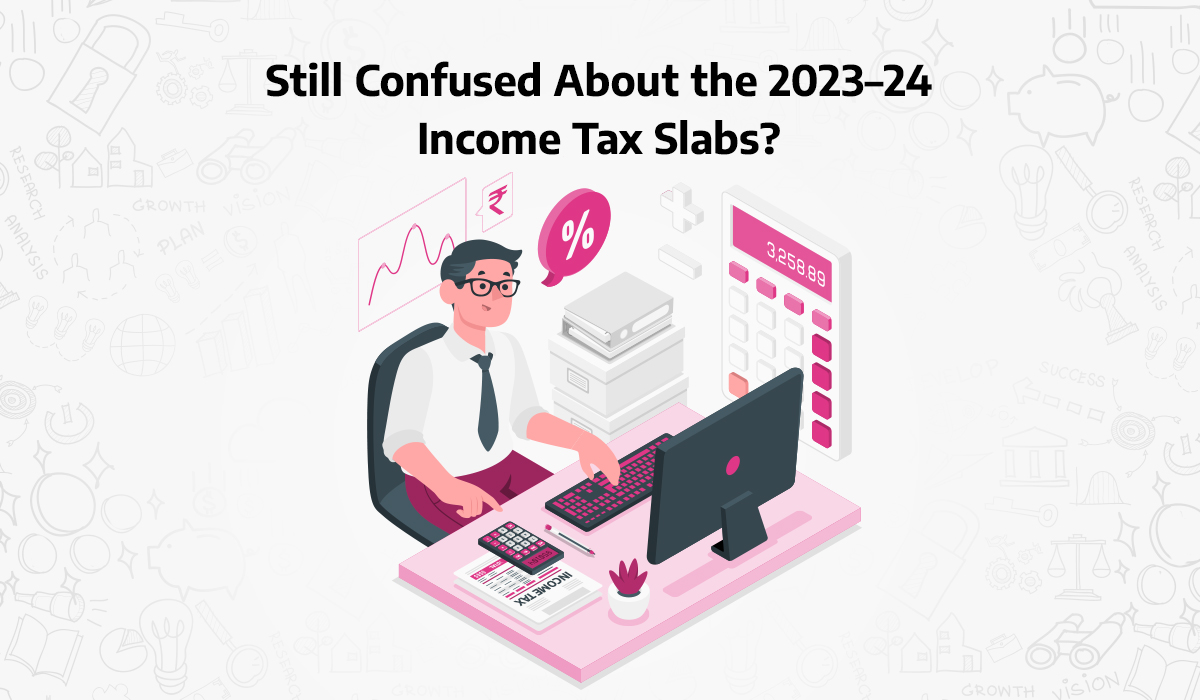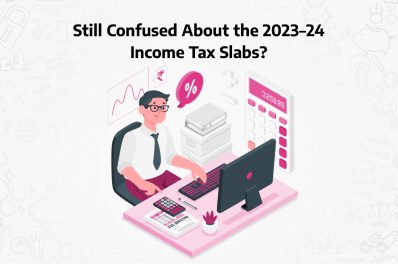
Besides imposing taxes on Indian citizens’ income, the Income Tax Act also offers several ways to claim rebates and deductions on those taxes. That means individuals falling under the taxable income category can still save money by claiming deductions and exemptions in their tax regime. One such deduction that salaried individuals may claim is the standard deduction in new tax regime. Here is everything you should know about the new regime’s standard deduction.
What is the Standard Deduction?
Be informed that salaried professionals and pensioners can claim deductions under the standard deduction system by default without spending or investing their money anywhere. The provision was unavailable for several years and was re-introduced in 2018 during the year’s Union Budget announcement.
In 2023, Finance Minister Smt. Nirmala Sitharaman again brought some changes in the new tax regime to make it more beneficial for taxpayers filing ITR in the FY 2023-24. From 1st April 2023, the standard benefit under Section 87A will be applicable to taxpayers who opt for the new tax regime in FY24.
Under this regime, they can claim a tax rebate of up to ₹ 12,500 in an assessment or financial year. However, if they opt for the new tax regime, they will not be eligible for other rebates like Section 80C, LTA, HRA, Section 80CCD, etc. Still, salaried professionals can claim a standard deduction of up to ₹50,000 with a non-taxable annual income of up to ₹ 7.50 Lakh.
Understanding the Income Tax Slabs
Income tax is the tax people pay on their income during one financial year. The income tax system has a progressive nature in India, which means those with a low income pay lower taxes, and as the income increases, the tax rate also increases. The Income Tax Department introduces income tax slabs with their applicable rates to specify the range of pre-determined taxation rates. The taxpayer’s income tax rate depends on their income tax slab, which helps calculate their payable income tax for the fiscal year.
After the announcement of the FY 2023-24 Union Budget, Indian taxpayers have the option to choose between the old and the new tax regimes. If they decide on the new tax regime, they pay discounted tax rates but compromise on other major tax exemptions and deductions. The standard deduction in new tax regime is applicable as a flat tax deduction from the taxpayer’s total salary in a financial year. The number of jobs the employee changes does not affect the deduction. Hence, one flat deduction is applicable for the cumulative income from all employers.
Earlier, the standard deduction was applicable only under the old tax regime. But the Budget 2023 extended a deduction of ₹ 50,000 to the salaried, family pensioners, and pensioners.
Income Tax Slabs Under New Tax Regime Budget 2023-24
These are the income tax slabs for FY 2023-24:
• Income up to ₹ 3 Lakh: Nil
• Income from ₹ 3 Lakh to ₹ 6 Lakh: 5% on income exceeding ₹ 3 Lakh
• Income from ₹ 6 Lakh to ₹ 9 Lakh: ₹ 15,000 + 10% on income exceeding ₹ 6 Lakh
• Income from ₹ 9 Lakh to ₹ 12 Lakh: ₹ 45,000 + 15% on income exceeding ₹ 9 Lakh
• Income from ₹ 12 Lakh to ₹ 15 Lakh: ₹ 90,000 + 20% on income exceeding ₹ 12 Lakh
• Income Above ₹ 15 Lakh: ₹ 150,000 + 30% on income exceeding ₹ 15 Lakh
Payable income tax depends on the income all individuals, partnership firms, HUF, corporate, and LLPs earn according to the Income Tax Act of India. For individuals, the tax amount depends based on the slab system if their earnings exceed the minimum threshold limits or basic exemption limits.
Who Can Claim Standard Deduction in New Tax Regime?
The standard deduction allowed in new tax regime applies to all salaried taxpayers in India. There are around 3.5 crore salaried professionals paying taxes in India, and every taxpayer will comply with the old regime if they choose the new tax regime. That is because the new regime also allows a standard deduction for taxpayers. Salaried professionals can claim a standard deduction of ₹ 50,000 if they choose the new tax regime. Pensioners can also claim the same deduction from their pension income under the new regime. However, the standard deduction for family pensioners is capped at ₹ 15,000.
Also Read: How You Can Maximise Tax Savings Under The New Tax Regime FY 2023-24?
According to the new tax regime 2023-24, salaried professionals, pensioners, and family pensioners do not need to pay any tax if their income does not exceed ₹ 7.5 Lakh in a year. However, one should not confuse these rebates with basic exemption limits. The latest Union Budget has increased the basic tax exemption limit from ₹ 2.5 Lakh to ₹ 3 Lakh. Thus, a person’s earnings become taxable if they exceed ₹ 3 Lakh in a fiscal year. Still, those with an income of up to ₹ 7.5 Lakh can claim deductions and rebates, under which they do not need to pay any taxes under the new regime.
Things to Consider Before Opting for the New Tax Regime
Indian taxpayers have the option to choose between the new and old tax regimes. However, before making the final choice, here are a few things to consider:
• Exemptions and Deductions: The new tax regime has more tax slabs and lower slab rates than those in the old regime. However, the tax exemptions and deductions are fewer in the new regime.
• Lower Limit on Tax Exemption Based on Age: Tax exemptions are higher for senior and super-senior citizens in the old tax regime. However, the new regime does not provide this higher limit, offering an exemption limit of ₹ 2.5 Lakh irrespective of the individual’s age.
• Benefits Beyond Tax Savings: Expenses and investments like PPF, life insurance, and NPS provide dual benefits under the old regime. The new tax regime does not offer such tax-saving benefits at all.
After understanding the Income Tax Slab for FY 2023-24, make an informed choice and get the maximum benefit of the standard deduction in new tax regime to save money on taxes.







